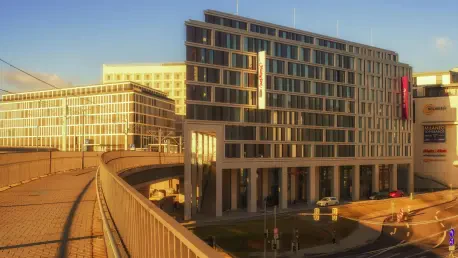In a rapidly evolving hospitality sector, hotel operators are charting new paths for growth with an emphasis on brand expansion and extended stay options. Recent reports highlight a bullish outlook among hotel executives, revealing that a significant majority see optimistic prospects over the next five years. This analysis explores the strategic implications of these trends on U.S. hotels, focusing on emerging opportunities within the extended stay market and the renewed importance of brand alliances.
Understanding Market Dynamics and Projections
The landscape of the hotel industry is shifting as operators seek to diversify their portfolios amidst economic uncertainties. A consistent theme across recent reports is the enduring value of brand opportunities, with a preference for brands over independent operations highlighted by industry leaders. Currently, 55% of operators continue to favor traditional brands, while 45% show interest in exploring more niche and flexible brand alternatives.
Moreover, extended stay accommodations have emerged as particularly attractive due to their robust performance and promising return on investment. A notable 96% of hotel professionals recognize the investment potential in extended stay segments. Lifestyle and boutique hotel formats are increasingly gaining favor as these models cater to the preferences of modern travelers seeking more personalized experiences.
Scrutinizing Technological and Legislative Influence
Technological advancements and legislative frameworks are integrally shaping the hospitality industry’s future. The CHIPS and Science Act, along with other infrastructure initiatives, are expected to foster extended stay accommodations. In this regard, Wyndham’s identification of significant revenue potential tied to these projects illustrates how legislative developments can transform market forecasts.
Technological solutions are also a central focus, with over 61% of hotel owners investing in innovations such as digital room keys, streaming services, and self-service kiosks. Sustainability initiatives, including EV charging stations, are gaining momentum, signaling a shift toward environmentally conscious practices. The integration of AI, extensively adopted by over 90% of industry players, continues to refine guest services and improve operational efficiencies.
Strategic Responses to Emerging Trends
Strategic brand alliances have become focal points as hotels navigate competitive pressures and shifting consumer preferences. Loyalty programs and advanced technology investments are crucial elements that drive guest engagement. Enhanced loyalty memberships, experiencing a notable upward trajectory, reinforce the importance of emphasizing customer-centric strategies.
Hotels are strategically expanding into various market segments, including lifestyle and boutique formats, midscale chains, and economy accommodations. Extended stay ventures remain at the forefront of investment decisions, backed by solid infrastructure growth projections and legislative support. Such expansion strategies, accompanied by technological advancements and sustainable practices, are crucial for future-proofing hotel portfolios amid dynamic economic climates.
Implications for Future Growth
The findings of this market analysis underscore the significance of embracing innovation and strategic partnerships in the hospitality sector. Although some challenges exist, the industry’s adaptability and forward-thinking approach promise continued vitality. Leveraging brand opportunities and extended stay models will remain pivotal in capitalizing on upcoming market developments. Hotel operators are encouraged to consider evolving consumer trends, legislative influences, and technological shifts to maintain competitive edges in a rapidly transforming landscape.









